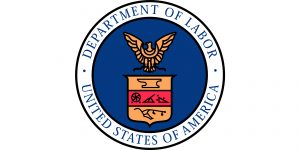The employment attorneys at Nardone Limited regularly assist our clients with labor and employment issues, such as Department of Labor compliance, as well as guidance on preventing and responding to discrimination and harassment charges filed with the Equal Employment Opportunity Commission (“EEOC”) and the Ohio Civil Rights Commission (“OCRC”). Our employment attorneys also regularly update clients on news, events, and changes in law as it relates to labor and employment issues that may impact our clients.
Introduction
Recently, on April 12, 2018, the U.S. Department of Labor’s (“DOL”) Wage and Hour Division released three opinion letters regarding interpretation of the law under the Family and Medical Leave Act (“FMLA”), Fair Labor Standards Act (“FLSA”), and Title III of the Consumer Credit Protection Act (“CCPA”) relating to certain grey-area scenarios that may come up for employers. The Nardone Limited Employment Blog will be addressing all three of the DOL’s April 12, 2018 opinion letters as part of a three-part series. This post, however, will focus on the DOL’s first letter of the set, which addresses an important interpretation of the overtime laws under the FLSA.
April 12, 2018 FLSA Opinion Letter
Specifically, the DOL’s first letter addresses a question commonly faced by employers: whether an hourly employee is entitled to compensation for time spent traveling away from the employee’s home community. Generally, the FLSA provides that employees are not entitled to compensation for their time traveling from their homes to the workplace. But, this issue becomes more complex when an employee is required to travel away from their home community, such as in instances of mandatory overnight travel. In these scenarios, such travel time is considered compensable worktime when it overlaps with the employee’s regular workday.
In particular, the DOL’s April 12, 2018 FLSA opinion letter addresses the scenario where an employee does not have regular working hours. The letter first notes that most employees do have a regular workday, and that the employer should closely scrutinize an employee’s time records. In those rare scenarios when the employee truly does not have regular working hours, the employer has two options when considering whether travel time coincides with the employee’s normal workday. First, the employer may choose the average start and end times for the employee’s workdays. Under that analysis, any travel time that overlaps with those time periods would be compensable. Or, alternatively, the employer may negotiate and agree to a reasonable amount of time or timeframe in which travel outside of employee’s home communities is compensable.
Practical Application to a Common Employment Scenario
To further explain, we will provide a quick summary on how the opinion letter’s advice would apply to an hourly employee who has mandatory out-of-town travel obligations for work, such as attending a mandatory training seminar. If the employee in the hypothetical operated under set working hours, the portion of the travel that overlapped with the employee’s ordinary work hours would be compensable. If the employee did not have regular work hours, then the employer would be permitted to use either of the two permissible approaches discussed in the DOL’s opinion letter. Under approach one, the employer would calculate the average work-shift start and end time for the employee, and then determine the employee’s compensable time based on the amount of required travel time that overlapped with the employee’s average start and end time. Alternatively, under approach two, the employer could maintain compliance with an employee that has irregular hours by agreeing and documenting with the employee in advance the amount of time that would be deemed compensable related to the required travel.
Takeaway Regarding the April 12th DOL Letter
The above description and analysis should provide employers a helpful overview regarding the recent DOL letter and its advice to employers. Perhaps most notably, however, the letter states that the DOL will not find an FLSA violation if an employer uses either method above to establish an employee’s average work hours and accordingly compensates the employee for travel that overlaps. Furthermore, the letter also makes clear that compensable worktime does not include time spent commuting between home and work, even when the employee works at different job sites. Overall, the interpretations provided in the recent DOL opinion letter certainly help to provide employers some much-welcomed clarity on these grey-area issues regarding wage and hour law compliance.
Contact Nardone Limited
The Nardone Limited employment attorneys handle a full spectrum of employment law issues, including business disputes and litigation, drafting of employment and restrictive covenants, and consultation on all types of employment law issues. If your business needs advice or representation on an employment dispute before the EEOC, the OCRC, or regarding potential employment litigation, contact one of our employment attorneys. Further, feel free to contact Nardone Limited if you would like more information or consultation regarding any employment law issue.
